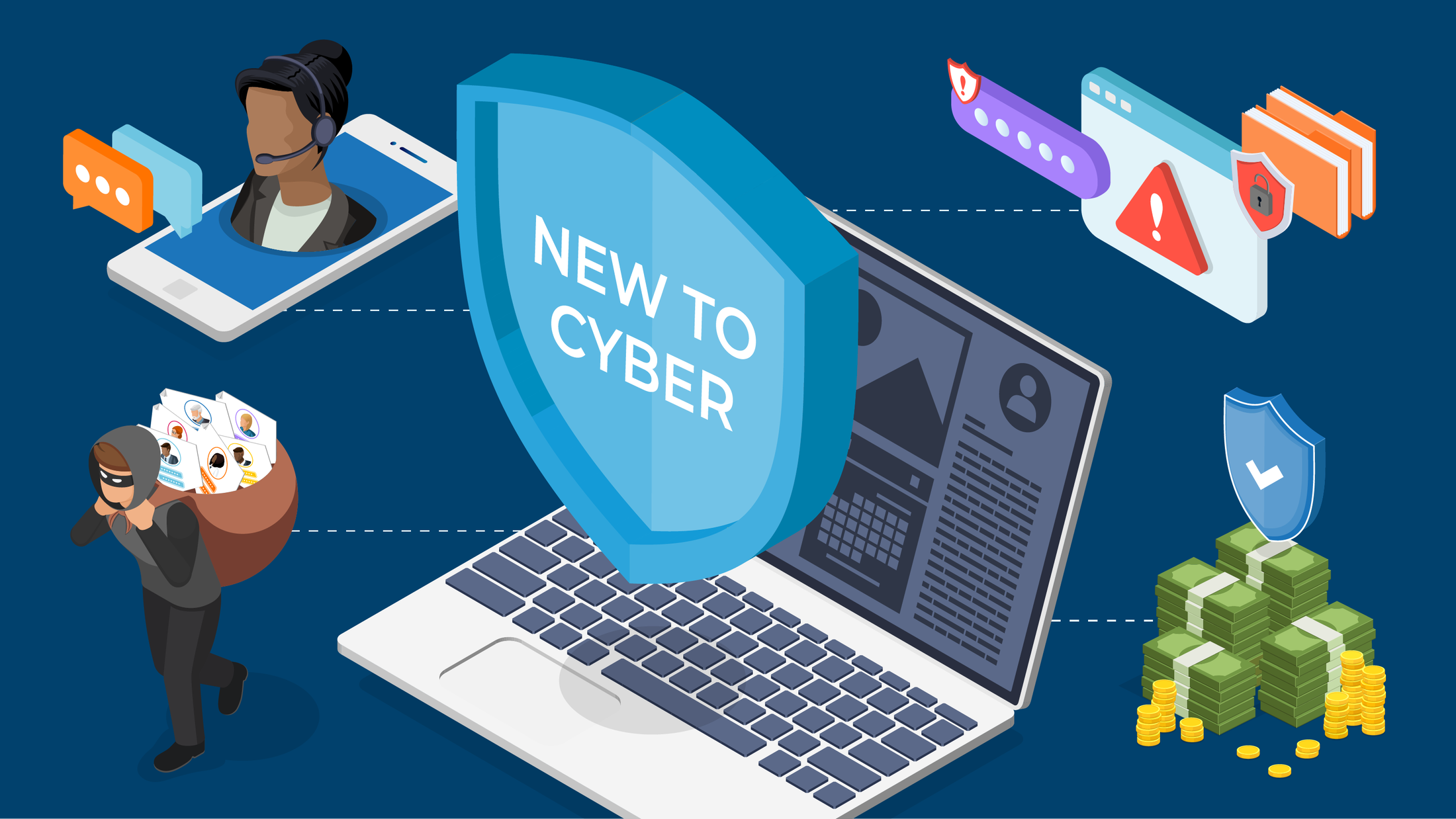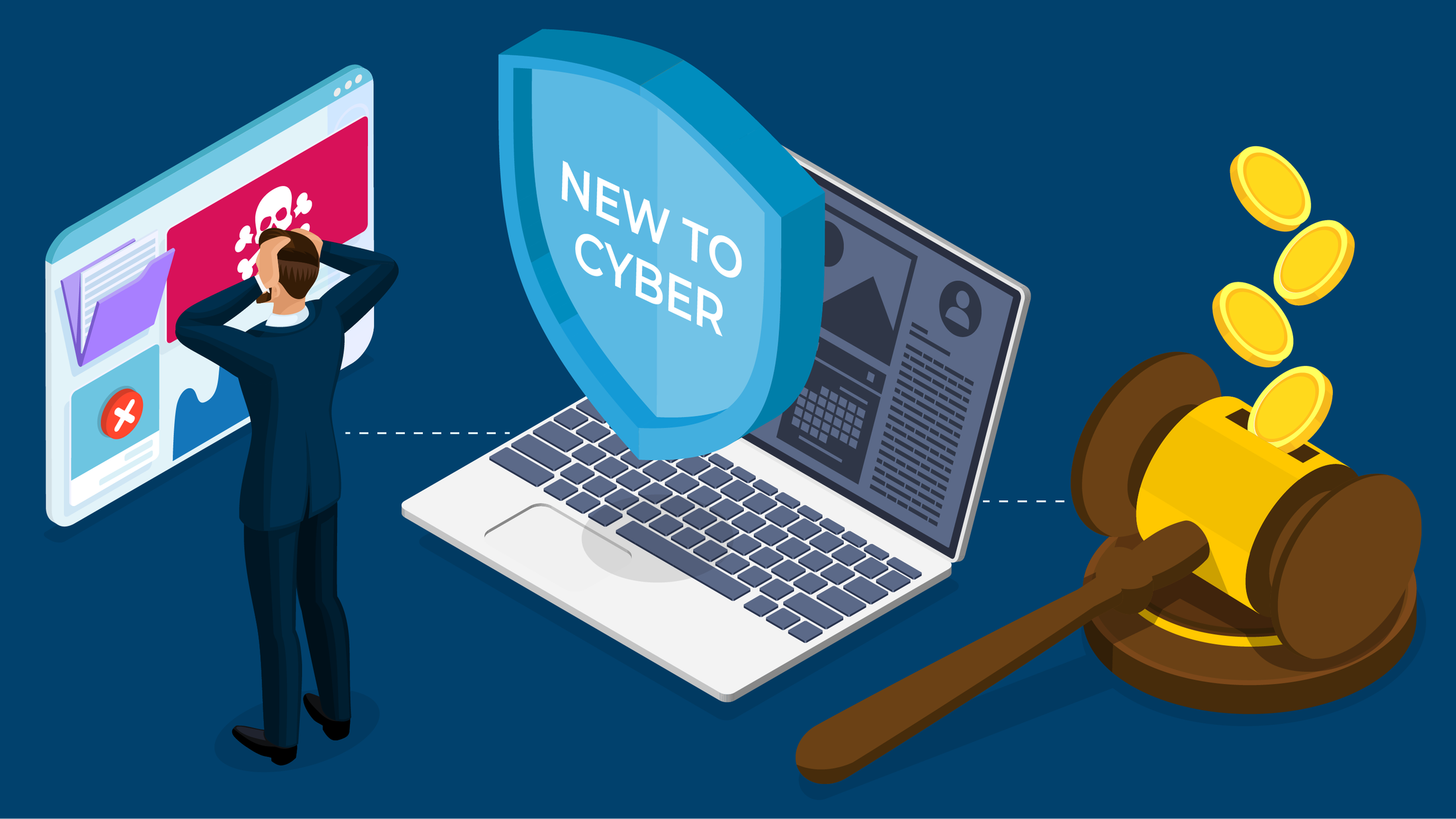Why do small businesses need cyber insurance?
Today’s cyber threats pose great financial risks to small businesses, making cyber insurance not only an indispensable safety net, but also an incident prevention strategy. That’s because small businesses often lack the resources to detect or recover from cyber attacks like ransomware and data breaches—threats preventable and coverable by cyber insurance policies.
Understanding why cyber insurance is paramount to your business and knowing the costs associated with this critical protection are the first steps toward safeguarding the future of your small business. So let’s explore the factors affecting insurance pricing, and learn how to choose suitable coverage for your company’s needs and risk profile.
What factors affect cyber insurance costs?
The cost of cyber insurance for small businesses is influenced by several key factors. It’s essential to understand these elements to make informed decisions about your coverage.
Industry
Different industries face unique cyber risks:
- Retailers handle high volumes of payment data, amplifying the risk of breaches.
- Healthcare providers must adhere to strict HIPAA compliance, which together with the handling of sensitive patient data drives up costs.
- Professional services firms must implement robust protections for confidential client data.
- Manufacturers rely on IoT devices, exacerbating vulnerability to operational disruption.
- Construction companies are increasingly using digital project management platforms and financial transfer systems, both of which come with their own myriad associated risks.
Businesses handling sensitive personal data, regardless of industry, must prioritize data protection to minimize risk. Still, no two businesses are the same. Explore our cyber risk heat map to learn more about the specific cyber risks impacting different industries.
Company size
While larger companies often have more complex systems, a larger attack surface, and greater revenues to protect, smaller businesses often benefit from a lower premium. However, this doesn’t diminish the importance of coverage. In fact, small businesses are especially vulnerable to cyber risk, as even relatively minor data breaches can have a significant financial impact. Lower cash reserves make it harder to recover from an incident, and less sophisticated cyber security protocols mean small businesses are prime targets for cybercriminals.
Risk profile
Your business’s level of cyber preparedness can impact insurance rates. Implementing strong cyber security measures like firewalls, multifactor authentication, and regular software updates may demonstrate a lower risk profile and potentially reduce premiums. A good cyber insurance broker will help you identify where improvements can be made to your cyber security posture, helping you repel threats while setting you up for an effective cyber insurance partnership.
Coverage limits and deductibles
Like any insurance policy, choosing higher coverage limits or lower deductibles will increase your premium, so it’s vital to balance the level of protection with your budget. Small businesses should carefully consider their potential financial exposure in the event of a cyber attack, and select coverage limits that adequately address those risks. Your broker and cyber insurance underwriter can advise in this case, working out the rights limits for your business. With CFC, businesses pay only one deductible per policy term, even if they suffer multiple cyber events throughout the policy period.
Claims history
Businesses with a history of cyber incidents may face higher premiums because of perceived increased risk. Conversely, a clean claims history can lead to more favorable rates. Maintaining detailed records of security incidents and response measures can help demonstrate a proactive approach to cyber risk management, and potentially improve premium rates.
Remember, almost every business has cyber exposure, so would benefit from cyber insurance to mitigate the risk. The greater the amount of risk you need to transfer to your insurer, the higher the cost of the premium.
For a cyber policy offering comprehensive coverage, proactive cyber attack prevention, unrivalled incident response, and award-winning claims, check out CFC’s cyber insurance.
What types of coverage are available, and what do they cost?
Cyber insurance policies offer various coverage options built specifically to address the diverse risks faced by small businesses:
- Data breach coverage spans forensic investigations, customer notification, and credit monitoring. Costs vary according to the number of records compromised and the complexity of the breach. It’s important to understand that these costs can escalate fast, especially if legal fees and regulatory fees come into play.
- Business interruption coverage includes financial losses resulting from downtime in the wake of a cyber incident. For small businesses, even a short period of downtime can have a severe impact on revenue. Business interruption coverage also accounts for the potential loss of customer trust and reputational damage, which can have long-term financial implications.
- Legal and regulatory coverage covers fees and fines arising from a cyber attack. These can be substantial, especially for businesses handling sensitive data. Small businesses should be aware of their industry’s specific regulatory requirements, and ensure their coverage adequately addresses those obligations.
- Extortion and ransom payment coverage protects against ransomware demands, including negotiations and potential ransom payments. Negotiating with cybercriminals can be tricky business. CFC has the experience and expertise to tell if paying the ransom is necessary, and if so, negotiate the right price.
However, with a comprehensive cyber policy, you don’t have to choose between coverages. It can be difficult to predict what time of cyber event you’re especially vulnerable to. The best course of action, with cybercriminals constantly evolving their techniques, is to go for a policy that gives you confidence you’re covered, no matter what. CFC’s cyber insurance is designed to defend your business against the whole spectrum of cyber threats and exposures.
How can small businesses manage their cyber insurance costs?
Managing cyber insurance costs effectively requires a proactive approach to cyber security and policy management. In particular there are 3 steps organizations should consider taking:
- Strengthen cyber hygiene: Investing in cyber security measures to improve your cyber hygiene can reduce your risk profile, potentially lowering premiums. Closing unused RDP ports, enabling multi-factor authentication and a data management strategy can all make a difference.
- Implement staff training: Educating employees about cyber threats like phishing and social engineering can minimize the likelihood of incidents caused by human error. Simulated phishing exercises and regular security awareness training can reinforce best practices and reduce the risk of human error.
- Review incident response plans: Regularly assessing your cyber incident response plan means you’ll know what steps to take in the event an incident occurs. A comprehensive plan helps to prepare you for the unexpected, and should evolve as your business changes.
CFC’s award-winning Response app gives you access to critical security tools, personalized cyber threat alerts, and free expert advice 24/7. Response is available to all CFC policyholders, demonstrating our commitment to helping businesses avoid cyber events altogether through proactive insurance. Because if there’s one thing better than expert incident response support minimizing the impact of an event, it’s that event not happening in the first place.
Is cyber insurance worth the investment for small businesses?
Cyber insurance is a critical investment in your organization’s future. While the initial cost can seem significant, the potential financial impact of a cyber attack far outweighs the premiums. Protecting your business from ransomware, data breaches, theft of funds, business interruption, and legal liabilities is paramount for long-term sustainability. And if you’re new to cyber, there’s so much more to learn about why cyber insurance really is worth the investment for your small business.
Secure your business’s cyber resilience today
Cyber insurance is no longer a luxury—it’s a necessity, especially for small businesses at a time when constantly evolving cyber threats are ever present.
By understanding the factors influencing costs, exploring available coverage options, and implementing proactive cyber risk management strategies, you can safeguard your company from cybercriminals now and for years to come.
Check out CFC’s Cyber hub to stay ahead in the rapidly shifting world of cyber liability insurance. For anything else, you can get in touch with our underwriters, or reach out to our expert team at cybermarketing@cfc.com.



